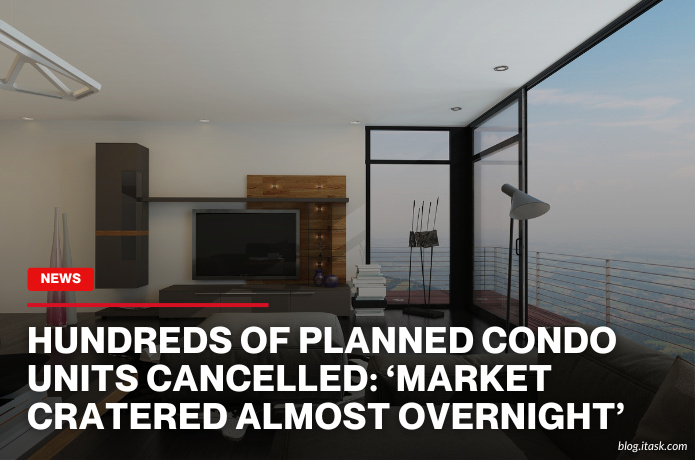Hundreds of planned condo units cancelled: ‘Market cratered almost overnight’
Hundreds of planned condo units cancelled: ‘Market cratered almost overnight’

Toronto's condo market is experiencing a significant downturn, with over 2,800 planned units cancelled in 2024—the highest number since 2020. This sharp decline is attributed to escalating construction costs, high interest rates, and a drop in investor interest. Urbanation, a real estate research firm, reports that 14 condo projects were cancelled last year, with six converted into rental units, reflecting a shift in developer strategies.
The financial strain on investors is evident, as 82% of those with mortgages on newly completed condos in the Greater Toronto Area (GTA) faced negative cash flow in the first half of 2024. This is a significant increase from 77% in the previous year and 40% in 2020. On average, investors who closed on a condo in 2023 lost $597 monthly, up from $223 for those who closed in 2022.
The market's instability is further highlighted by a 643% surge in terminated condo listings in the GTA within six months, rising from 380 in January to 2,822 in June. Experts attribute this to sellers overpricing their properties and buyers becoming more cautious due to economic uncertainties.
High construction costs, up approximately 20% year-over-year, have made many projects economically unfeasible. Supply chain issues and labor shortages have exacerbated these challenges, leading to the potential cancellation of about 5,000 new condo units in Toronto. This situation not only affects current projects but also delays future developments, impacting housing supply in the coming years.
The slowdown in the condo market has broader implications for housing affordability and rental supply. With investors retreating and developers halting projects, the GTA faces a potential stagnation in housing stock, worsening the existing housing crisis. Experts warn that without significant policy interventions and market adjustments, the region's housing challenges will intensify.
In summary, Toronto's condo market is undergoing a significant correction, marked by project cancellations, investor losses, and a surge in unsold units. These developments signal a need for strategic responses to stabilize the market and address the underlying issues affecting housing affordability and supply in the region.
